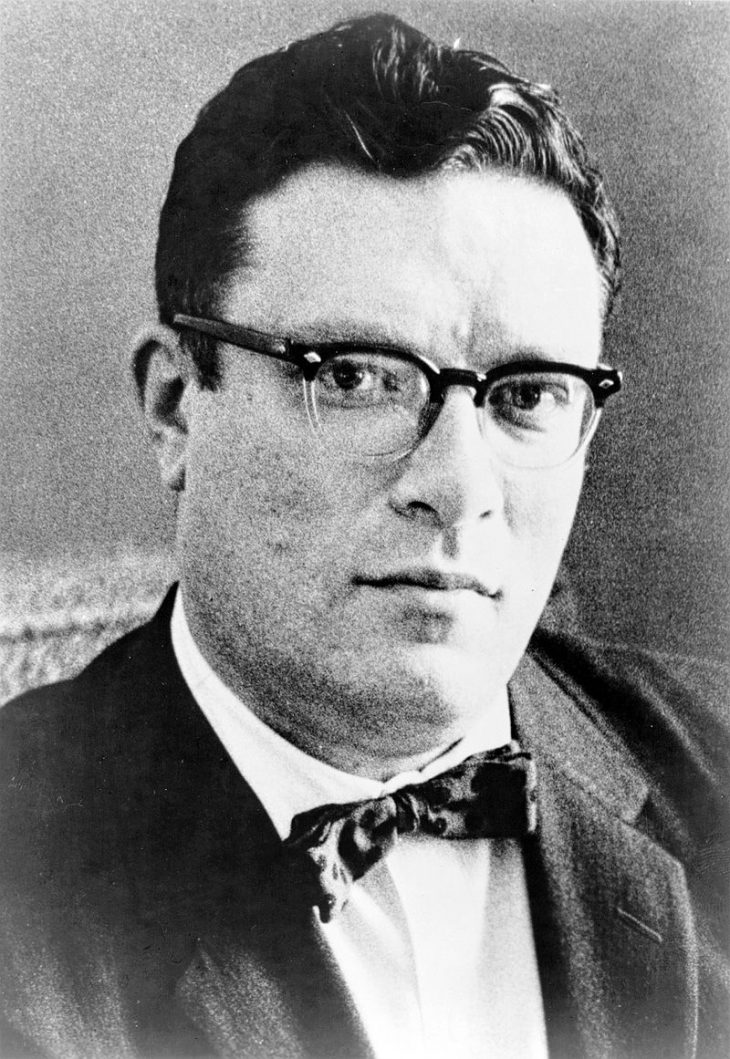
Word of the Day: Psychohistory
Today’s word of the day, thanks to the Oxford English Dictionary, is psychohistory. Psychohistory is a noun that means “history or the writing of history employing the techniques of psychoanalysis to explore motivations, explain actions,” according to www.dictionary.com. The OED defines it thus: “‘The analysis or interpretation of historical events from the point of view of psychological or psychoanalytic theory.” The OED adds a second definition, “A treatise on or study in this subject; esp. a psychobiography.”
Psychohistory is obviously a compound word, though the first part, psycho-, is not exactly the same as the word psycho, which is a slangy shortening of the word psychopath. Psycho- is a “word-forming element meaning ‘mind, mental; spirit, unconscious,’ from Greek psykho-, combining form of psykhē ‘the soul, mind, spirit; life, one’s life, the invisible animating principle or entity which occupies and directs the physical body; understanding, the mind (as the seat of thought), faculty of reason’ (see psyche). It also was used to form compounds in Greek, such as psychapates ‘soul-beguiling’ (with apate ‘deceit’), according to www.etymonline.com. History comes into English in the 14th century “from Old French estoire, estorie ‘story; chronicle, history’ (12c., Modern French histoire), from Latin historia ‘narrative of past events, account, tale, story,’ from Greek historia ‘a learning or knowing by inquiry; an account of one’s inquiries, history, record, narrative,’ from historein ‘inquire,’ from histōr ‘wise man, judge,’ from PIE *wid-tor-, from root *weid- ‘to see.’”
Today is National Science Fiction Day. It is not at all clear who started National Science Fiction Day, but whoever did, they chose this day because it is the birthday of one of the genre’s greatest writers, Isaac Asimov.
Isaac Asimov was born in the Soviet Union in 1920, in the Smolensk Oblast, in Petrovichi. His parents traveled to Brooklyn, New York in 1923, where his parents had a series of stores that sold newspapers and magazines as well as candy. He became a US citizen in 1928, went through school, and finished a bachelor’s from Columbia University in 1938. He went on to receive a Master’s and a Doctorate in chemistry. Asimov began writing short stories as a boy, and he wrote science fiction, including stories about robots. He noticed that a lot of the science fiction written in the 20s and 30s depicted robots as evil creations that would kill humans and try to take over the world, so he began a series of short stories that depicted robots as just the opposite, as servants of human kind. He later gathered some of these stories into a collection with a frame story, calling it I, Robot. The title was later made into a movie that was the exact opposite of what Asimov was trying to accomplish. In the process of writing about robots, Asimov came up with the 3 laws of robotics (a word, by the way, which Asimov coined).
Asimov wrote a series of science fiction/detective novels involving robots: The Caves of Steel (1954), The Naked Sun (1957), The Robots of Dawn (1983), and Robots and Empire (1985). His most famous series of books was the Foundation Trilogy: Foundation (1951), Foundation and Empire (1952), and Second Foundation (1953). He followed up the original trilogy with Foundation’s Edge (1982) and Foundation and Earth (1986). Then he wrote two prequels to the Foundation Trilogy: Prelude to Foundation (1988) and Forward the Foundation (1993). In addition, he wrote numerous other novels and short stories, many essays, works on science, and much more. He was one of the most prolific writers in history.
Foundation begins on the planet of Trantor, the capital of the Galactic Empire, which is 12,000 years old and near the final stages of its collapse. In preparation for the collapse, a group of scientists, led by Harry Seldon, has created a way to preserve civilization through the collapse that is coming. These scientists have based their preparations on predictions about the behavior of the mass of people of the Empire, predictions derived from a combination of history, sociology, and mathematics. And this science is called psychohistory.
There is lots of really good science fiction by writers other than Isaac Asimov. It’s often broken down into two categories, hard SF and soft SF, the former focusing more on technology and the latter focusing more on characters. But much of it is really good. In addition, science fiction inspired many of the scientists and engineers who were responsible for the moon landing and continues to inspire scientists and engineers to achieve the futuristic vision of the writers of speculative fiction.
I won’t give you a list of authors to read because I’m not sure I could stop. Asimov, Arthur C. Clark, Robert Heinlein, etc., etc. etc. But on this 202 Science Fiction Day, take a moment to consider renewing your acquaintance with the genre.
The image is of “Dr. Isaac Asimov, head-and-shoulders portrait, facing slightly right. Published in 1965, this photo also appears on the jacket of the Doubleday first edition of Nine Tomorrows so date of creation can be no later than 1959” (https://en.wikipedia.org/wiki/Isaac_Asimov#/media/File:Isaac.Asimov01.jpg).